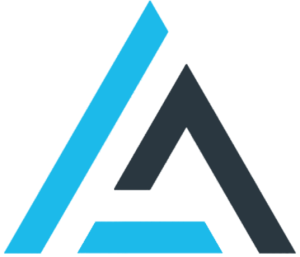(1) General Information:
School | SCHOOL OF ECONOMIC AND MANAGEMENT STUDIES |
Department | Business Administration |
Level of Studies | Undergraduate |
Course code | 807 | Semester | 8 |
Course title | Agile Management |
INDEPENDENT TEACHING ACTIVITIES | Weekly teaching hours
- | ECTS |
| | 4 | 5 |
| | |
Type of course | Elective – Management |
Prerequisite course | Principles of management |
Language of instruction and exams | Greek |
The course is offered to Erasmus students | ΝΟ |
Course URL | |
(2) Learning outcomes:
Learning outcomes |
This module helps students to understand the basic concepts of agile management and how to apply it within a modern business. More specifically, students will comprehend: - The agile concepts principles and values
- The most popular agile methods
- Change management
- The way the agile groups are working
- To manage requirements using user stories
- How to apply agile methods to different types of enterprises
|
General Skills |
This course aims not only to technical knowledge but also to help the student develop more generic competences and skills such as: - Autonomous as well as teamwork
- Project planning and management
- Agile management
|
(3) COURSE CONTENT
- Introduction to agile methods.
- The agile framework, the history, the principles, the values and the methodologies.
- Introduction to the SCRUM method.
- Management of participants and receivables.
- Teams in agile projects. Competencies needed by agile project team members
- Presentation of the lean approach to management
- Alternative approaches – Lean management
- Alternative approaches - the KANBAN method.
- Case study A: Examples of the application of agile management in organizations.
- Case study B: Agile methods as an educational tool.
|
(4) TEACHING AND LEARNING METHODS - EVALUATION
TEACHING METHOD | FACE-TO-FACE LECTURES, LABORATORY ASSIGNEMENTS |
USE OF INFORMATION AND COMMUNICATION TECHNOLOGIES | Using specialized software for agile methods USING ICT TOOLS FOR COMMUNICATION (eclass) |
TEACHING ORGANIZATION | Activity | Semester Workload | Lectures | 40 | Assignment | 40 | Self Study | 70 | | | | | | | | | | | | | Course Total Effort | 150 |
|
STUDENT EVALUATION | Module Assignment 50% Final Exam 50% |
(5) BIBLIOGRAPHY
- Fitsilis, P. (2022), Agile Management, Kallipos Publication .
- Moreira, M. E. (2017). Agile Enterprise. Apress. https://link.springer.com/book/10.1007/978-1-4842-2391-8
https://link.springer.com/book/10.1007/978-1-4842-2391-8 - Wiraeus, D., & Creelman, J. (2018). Agile Strategy Management in the Digital Age: How Dynamic Balanced Scorecards Transform Decision Making, Speed and Effectiveness. Springer. https://link.springer.com/book/10.1007/978-3-319-76309-5
https://link.springer.com/book/10.1007/978-3-319-76309-5 - Pal, N., & Pantaleo, D. (Eds.). (2005). The agile enterprise: Reinventing your organization for success in an on-demand world. Springer Science & Business Media. https://link.springer.com/book/10.1007/b106720
https://link.springer.com/book/10.1007/b106720 - Kelly, A. (2019). The Art of Agile Product Ownership: A Guide for Product Managers, Business Analysts, and Entrepreneurs. Apress.
https://link.springer.com/book/10.1007/978-1-4842-5168-3 - Miller, G. (2016). Going Agile: Project management practices (2nd ed.). Atlanta: Maxmetrics LLC.
- Rubin, K. (2012). Essential Scrum: A practical guide to the most popular agile process. Upper Saddle River, NJ: Addison-Wesley.
|

